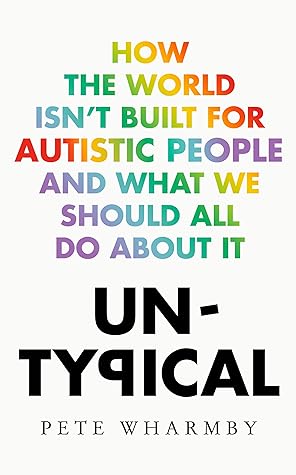More on this book
Community
Kindle Notes & Highlights
by
Pete Wharmby
Read between
April 26 - December 21, 2025
people go through life accidentally ignoring, belittling, mocking and hurting actually autistic individuals whose lives and brain architecture can’t be summarised in a thirty-second video online or a mediocre character arc in a sitcom.
This !! The oversimplification of what it means to be autistic is a huge reason why existing as an autistic person is so challenging. Whilst online videos did help me to feel "seen" and begin to understand myself pre-diagnosis, I also fear that people see a couple of videos and feel that they're either an expert, or come out with the classic line "we're all a bit autistic!".
Overall, I managed to survive quite well, really. I mean, it was extremely tiring, and I think I knew something, somewhere, was very wrong, but I passed through without anybody speculating that I was different, least of all myself.
Making eye contact beyond very fleeting micro-moments of direct pupil-to-pupil alignment is something we’d rather do only with those whom we’re comfortable to fart in the presence of.
Imagine if every time someone touched you it hurt, or if every light appeared dazzling and harsh, or if every sound came as a terrifying loud shock: that’s how being autistic can feel, much of the time.
masking is a very tiring thing, and we autistic people feel, for the most part, that we’re forced into it by a society who cannot accept us for who we are. It’s impossible to sustain forever, however, so there has to come a point where we drop the mask. And what inevitably happens when we do this? The answer is as predictable as it is depressing: we’re immediately reminded why we put it on in the first place.
For many years I’d no idea what they were, nor what caused them – I assumed they were simply tantrums, and that I had a bad temper or was particularly childish (it’s amazing how cruel a person can be to themselves when trying to explain behaviour caused by a disability they don’t know they have).
I feel so sad for my younger self thinking I was just “reactive”. So much self hate where self compassion should have been.
I’m old enough, and got diagnosed late enough, to have internalised whole heaps of ableism, and I therefore struggle to see my meltdowns as anything other than big adult tantrums.


